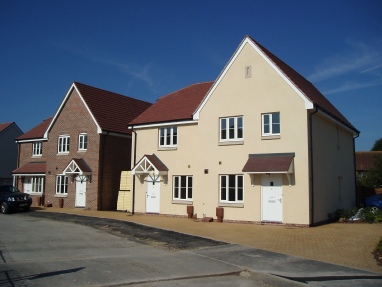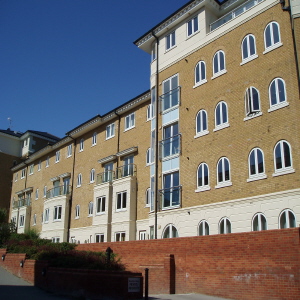What is a Leasehold property?
A lease is a legal agreement with the landlord or freeholder. It will state how long you will own the property. With a leasehold home, you only own it for a fixed period of time, this being the number of years left on the lease before ownership of the property reverts to the landlord or freeholder.
Leaseholders are required to pay ground rent and service charges. Often leaseholders have no control over the amount or increase in service charges and freeholders and their service agents have little interest in keeping costs down. There are often additional restrictive covenants and you will need the freeholder's permission to make changes to the building structure. Contents insurance is usually higher because discounts for joint buildings and contents insurance are not available. It is also becoming increasingly common that ground rent is no longer fixed for the duration of the lease. Many new homes are being sold with a ground rent review clause in the lease, meaning ground rents will rise dramatically in later years.
In Britain, most flats are leasehold. Houses can be leasehold too and usually are if they’re bought through a shared ownership scheme. In fact around 6,000 new-build houses were sold as leasehold in 2015 according to government figures. This is becoming the new mis-selling scandal and buyers are advised to avoid at all costs new houses sold as leasehold.
This website advises against buying any new house that is not being sold on a freehold basis. Even if a house is sold freehold, there may still be ongoing charges for shared areas and private roads.
 The Conveyancing Association (CA), are of the view that leasehold property owners can easily be exploited by unscrupulous freeholders and their agents under current legislation and are calling for reform and an amendment of the leasehold legislation. See Leasehold Solutions Guide For Long Leases in England and Wales
The Conveyancing Association (CA), are of the view that leasehold property owners can easily be exploited by unscrupulous freeholders and their agents under current legislation and are calling for reform and an amendment of the leasehold legislation. See Leasehold Solutions Guide For Long Leases in England and Wales
Leasehold property owners looking to sell their property require information from the freeholder for the sale for which the freeholder can charge administration costs. Currently there is inadequate protection for leaseholders during the buying or selling that cause significant overcharging and delays.
Nearly 26% of Land Registry transactions are leasehold properties, 260,000 in 2015 up from 220,000 in 2011. In addition, figures from the Land Registry reports show that leasehold properties accounted for 43% of all new home registrations in 2015, nearly double the 22% recorded in 1996. Most leasehold property is bought by retirees looking to downsize and first time buyers buying cheaper flats. However many in this vulnerable group do so without realising that leasehold tenure is heavily weighted in favour of the freeholder.
The number of leasehold houses is also increasing. According to figures from the Department for Communities and Local Government, in 2013 there were 670,000 leasehold houses in Britain, with 63,000 being added since 2008. Government figures also show that around 6,000 new houses were sold as leasehold in 2015. This will only increase as more new leasehold properties are built with housebuilders' such as Persimmon preferring to sell even new houses, as well as apartments on a leasehold tenure to boost profits.
The National Leasehold Survey June 2016
The first ever independent national survey of leaseholders conducted by Brady Solicitors, showed 57% of leaseholders regretted buying a leasehold property, with two-thirds saying they don't believe they get a good service from their managing agent.
Of the 1,244 leaseholders surveyed, just 6% were very confident the managing agent could resolve issues, with 68% having little or no confidence that their managing agent could resolve them efficiently and effectively. A fifth of those surveyed were unaware that they could replace a poor performing managing agent, despite over half believing such a change would improve matters.
Leaseholders would appear to believe changing managing agent would be difficult (55%) with 48% having a lack of knowledge of the process. Only 40% of leaseholders think their services charges are value for money and 62% have not seen an improvement in service during the last two years. Surprisingly, 52% of leaseholders said they were confident of their rights and responsibilities.
Many property and legal experts are saying the survey is sending a clear message to government that changes are required to the leasehold sector.
So what can be done for those saddled with a Leasehold property with escalating and unreasonable service charges?
 Right to Manage
Right to Manage
The Commonhold and Leasehold Reform Act 2002 gave leaseholders a statutory right to take over the management of their property from the freeholder. To do this they need to set up a right manage company, requiring at least half of the leaseholders in the building to agree and join. The building is then run by the flat owners themselves, or they can appoint their own managing agent. It is worth noting that the freeholder also has a right to be a member of the right to manage company and have a vote. The right to manager process can cost around £500 per flat to complete and take around five months to do so. A right to manage company is also liable for the "reasonable costs" incurred by the landlord or freeholder under the 2002 act.
Buying the Freehold
Under a process called "collective enfranchisement" leaseholders can club together and buy the freehold of their building. Owing the freehold not only gives flat owners more control, the individual flats will also be worth more. Again half the flats in the block will need to agree. The under the process, a company is set up with shares distributed to each leaseholder in the building. Normally at this time, ground rents are reduced to a nominal amount and the length of the leases extended. Acquiring the freehold is subject to a payment to the freeholder, involving a court application, perhaps even a tribunal. The cost of the freehold is affected by a number of factors including the value of the property, the remaining length of the leases and the ground rent payable. As a guide to costs Freeholdcalculator.com gives a guide to the costs involved. This can also cost around £3,000 in legal fees.
Both of these options require at least half of the leaseholders to agree and pay a share of the costs involved which is often an impossibility for many over-stretched new home buyers.
The website Home Owners Rights Network has been set up to fight the unfairness of Freehold management and maintenance charges for roads, footpaths and common landscaped areas and to campaign for a change in the law. The Leasehold Knowledge Partnership is a registered charity and was set up to protect ordinary leaseholders’ interests. In this case a leaseholder faced eviction as a freeholder even has the power, in a worst case scenario, to force forfeiture of a lease where the entire asset is seized and the leaseholder evicted from their home for failure to pay sums owed to the freeholder. This case, was ruled in the leaseholder's favour eventually.
Return to Top




 The Conveyancing Association (CA), are of the view that leasehold property owners can easily be exploited by unscrupulous freeholders and their agents under current legislation and are calling for reform and an amendment of the leasehold legislation. See Leasehold Solutions Guide For Long Leases in England and Wales
The Conveyancing Association (CA), are of the view that leasehold property owners can easily be exploited by unscrupulous freeholders and their agents under current legislation and are calling for reform and an amendment of the leasehold legislation. See Leasehold Solutions Guide For Long Leases in England and Wales Right to Manage
Right to Manage

